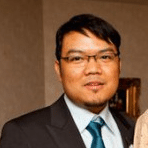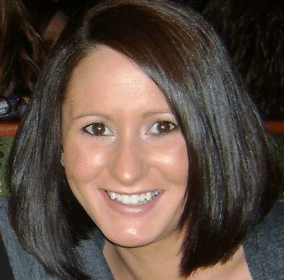
Raymund Hip Loy Lee
Hometown: Toronto, Ontario
What school did/do you attend?
-University of Guelph
-George Brown College
Do you work? No
What is/are your career goal(s)?
-Chef
-Massage therapist
Your Cancer experience:
How did you find out you were sick? What event(s) led to the diagnosis? In October of 2008, I had strange abdominal cramps. At first I assumed it was mid-term stress or I had worked out my abs too much. A few days passed and the pain was gone, then it came back the night I came back to Toronto for the weekend. At that point the pain was so severe I couldn’t breath too well; it was then I went into emergency.
What was/is your diagnosis? Acute Lymphoblastic Leukemia (ALL). Shortly after the chemotherapy started, I developed a blood clot on the left side of my brain. This resulted in me having a stroke, paralyzing my left side almost entirely.
What year was it? What was your age at the time? 2008; I had turned 20 less than two weeks earlier.
In which hospital(s) are/were you treated? Princess Margaret Hospital
At what level of education were you at diagnosis? Post Secondary, University
What were your first thoughts when diagnosed? I cried out in anger and disbelief. Then, decided to take the necessary steps and time aiming to get healthy again.
How did your family react?
My mother stuck with me through the whole ordeal. She put up with me, was there for me, took care of me, always listened when no one else would. Her husband did the bare minimum in support, at some points he made living in the same house more frustrating, forgetting my protocol was two years, forgetting I was paralyzed, telling me to get a heart attack when he couldn’t handle my mood swings due to the steroids, leaving the house for the whole day and only coming back to sleep. All of my mother’s side of the family is either in Philippines or the west coast of Canada; her husband’s are only in-laws and only one aunt and her children showed their faces when I was in the hospital. Trying to stay in touch via the internet was difficult and I found I was initiating contact most of the time.
How did your friends react? Were you treated any different?
Most of my friends said they were worried, wanted to see me, would called me, and would visit me. In the hospital, there was a lot of support. After being released as an out-patient, people slowly stopped talking to me. Only a handful actually bothered with me. If they did say something, they would suggest later plans but not follow up. Some were more ignorant than others, saying things like; “Oh you’re not cured yet?” “It must be nice to be on vacation.” “Oh you still can’t open that jar?” “You should race in your wheel chair.” “Why do I have to hear that you’re dying through Facebook?!” The few friends that did stay were always consistent and never treated me differently.
What did your treatment consist of?
As an in-patient I had to juggle both chemotherapy and physiotherapy. Once I was in remission, they focused on getting me to sit upright and eventually walk with a cane. When in the hospital, all of the medication was chemo. As an out-patient, I had eight days of radiation then a very long 30-week protocol of chemo. When that protocol was finished, I then had a 72-week protocol (twenty four cycles) of reduced chemo. The start of each cycle had chemotherapy at PMH while the remaining two had chemo with a home care nurse.
Physically it was extremely taxing and frustrating due to the paralysis. My left arm was limp for almost one year if I didn’t concentrate on it. When I was feeling good, I would exercise; when on steroids, I would avoid people. The first protocol had a lot of nausea and vomiting; I collapsed at one point due to exhaustion and dehydration. Being unable to venture far from the house without exhausting myself was the most frustrating.
Emotionally, it was worse because there were two weeks out of the three I avoided people in each cycle. I found that I would hear from others less and less. There were several times I felt so depressed I didn’t want to do anything, but I knew if I didn’t, I would never get better. Guilt, anger, and regret were the most prevalent emotions I had early on. But when I was well enough to move, I would take advantage of it.
What is your current medical status? As of now I have finished chemotherapy and only need to check in with my doctors every three months. The paralysis is still present, but I can walk without a cane, and I am currently going through physiotherapy to rehabilitate my body.
How is life different for you now post diagnosis (physically, emotionally, socially, and spiritually)?
Physically, I feel great. I go for walks even in winter. I bike on my stationary spinner in the house. I stretch and do resistance training. I’m currently taking part time courses at George Brown College and aiming for a culinary certificate. In the fall, I hope to enter a full-time cooking program, and after that I aim to become a registered massage therapist.
Emotionally, it was a roller coaster. The medications I was on caused constant mood swings, nausea, and fatigue. The paralysis was a grim depression, but also a strong motivation.
My social life was very difficult and shocking. Prior to getting sick, I felt I was a very social person, and in the hospital I believed it with all the support coming in. However, once I went back home, the contacts dropped over time. People would say we should spend time together and I replied, “Let me know when you’re free.” I never got to know when they were free. It got so frustrating I removed people from my contacts, Facebook, phone list, messengers. Shortly after, people got offended, which was unbelievably confusing. So from the end of 2008 to mid 2009, I had a vast support group. After 2009, I only keep in touch with a handful of people.
Spiritually, at first I didn’t think too much on it. I would take my illness, set the necessary time aside to deal with it, then get back to my life. As time passed, I needed a sense of clarity and took meditation sessions. I always had an open mind, but didn’t really explore too much into religion. I’m not a religious person; I read books on Buddhism, though do not practice it culturally. I do feel things happen for a reason and some greater unseen force dictates things beyond our control. I can’t explain it fully, but to me I felt cancer and paralysis were necessary in my life to make me reflect on what I want and should be doing with it.
What is/was the toughest part of your challenge? The fact that I not only had to deal with cancer, but dealing with paralysis as well.
What is/was the best part of your challenge? The time I gained to look at my life and see what I really wanted. The motivation to overcome my illness and disability.
What really motivated/motivates you to keep going while you were/are sick? One of the nurses told my mother the damage from paralysis might be permanent. I’m set on proving that wrong. When they told me I had cancer, I knew I had to get better; it wasn’t the end for me.
What lessons or messages have you taken away from your experience? I always took people for their word, now I learned only few actually keep to it. With enough motivation and effort you can make many accomplishments.
What are your thoughts and feelings about your illness now? How have they changed since before your diagnosis? I’ve learned to become very patient though keeping it up isn’t always easy. I know that my illness and disability was just a minor detour in my life, I just needed the necessary time to get by it. At times, I’m glad these things happened to me; I learned from the ordeals and am working to overcome them.
What are some (if there are any you know of) preventative measures that people can take to lower their risk of having an experience like yours? I wouldn’t know. I thought I was living a healthy lifestyle, eating right, exercising, sleeping well. I still got sick. The only measure I can trust in is take things as they come and keep your well being in good health as you do so.
Did you attend any support groups during your challenge?
-If so, what was it like? Did you find it helped? I attended the Wellspring Odette House and Gilda’s club Toronto. Odette house had several therapeutic courses which I found helpful. Group drumming, group meditation, return to work programs (though the latter didn’t apply to me much). Gilda’s Club had the 20-30s iconnect meetings which provided a support group. It was good, even though we only met once a month.
How are you connected with Young Adult Cancer Canada? I was looking for support groups during my chemotherapy and had sent an email to Young Adult Cancer Canada. I was then directed to Gilda’s Club. From there, I met with Daniel Schneiderman who facilitates the iconnect 20-30s support group and he spoke to me about YACC and Retreat Yourself.









